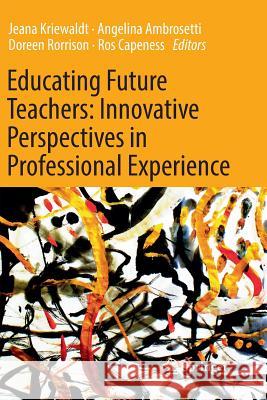Educating Future Teachers: Innovative Perspectives in Professional Experience » książka
topmenu
Educating Future Teachers: Innovative Perspectives in Professional Experience
ISBN-13: 9789811354090 / Angielski / Miękka / 2018 / 248 str.
Kategorie:
Kategorie BISAC:
Wydawca:
Springer
Język:
Angielski
ISBN-13:
9789811354090
Rok wydania:
2018
Wydanie:
Softcover Repri
Ilość stron:
248
Waga:
0.38 kg
Wymiary:
23.39 x 15.6 x 1.45
Oprawa:
Miękka
Wolumenów:
01
Dodatkowe informacje:
Wydanie ilustrowane











